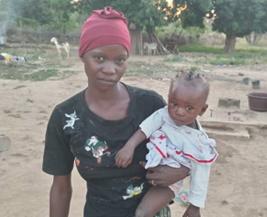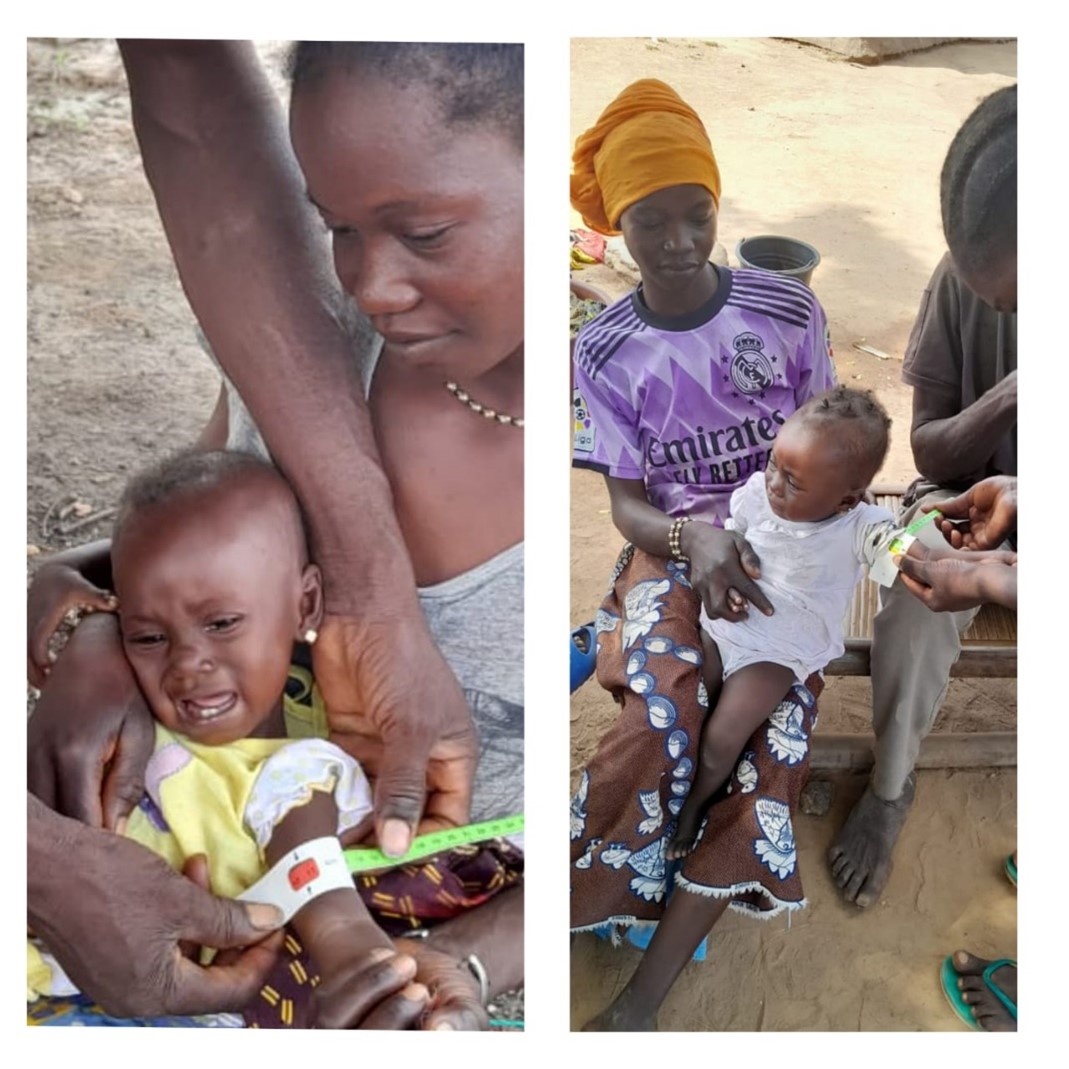Success Story
Saving Lives through the Supply Chain Improvement of Nutrition Commodities in Mali
August 7, 2024

The rate of child malnutrition in Mali is among the highest in Sub-Saharan Africa with almost half of deaths for children under five years old attributed to malnutrition.
To better address malnutrition in Mali, USAID, through NPI EXPAND, supports the activities of the Nutrition Action Groups (GSAN) in Mali, which is a national initiative for community mobilization that works partnership with local NGO’s.
The Nutrition Action Groups include nutritional demonstrations, screening children for malnutrition, and communication activities to encourage the adoption of healthier diet and cooking practices.
Fatoumata, a 12-month-old girl living with her parents in the village of Tessan, in the Kati health district of Mali, developed severe acute malnutrition (SAM) and showed signs of severe complications. She was frail, had trouble walking, and was severely dehydrated after multiple episodes of diarrhea.
Her parents fed her the same meals as the rest of the family, but they were unaware of how this was impacting her growth and development. Often, meals consist of rice or starch and a sauce and do not include leafy greens or vegetables rich in vitamin A. Meat is limited and generally the head of the household has priority in consuming the meat. These factors contribute to childhood malnutrition like the case of Fatoumata. After several consultations and attempts of treatment by traditional healers, Fatoumata’s condition worsened.
Aissata, Fatoumata’s mother, was invited to a nutritional demonstration activity organized by Community Health Agents from her village, who are regularly supported and coached by NPI EXPAND. With the support of the Community Health Agents, Fatoumata was screened and diagnosed with SAM, which is the deadliest form of malnutrition.
Fatoumata’s mother was increasingly worried about her daughter’s condition. “I lost all hope of my daughter’s recovery. She had diarrhea and sores in her mouth. She was losing weight day by day because she couldn’t eat properly,” says Aissata, Fatoumata’s mother.
Her case required emergency medical assistance, and the community health worker (CHW) gave the parents information on medical care procedures and the child’s referral to another facility with the capacityto provide the care she needed. Her transfer was organized to the Community Health Center and then to the Kati Referral Health Center (CSRef), where she was hospitalized for further treatment.
During her hospitalization, thanks to support from NPI EXPAND, Fatoumata received medical care and ready-to-use therapeutic food (RUTF), which is a shelf stable, nutrient dense product that is used to treat severe malnutrition.
As part of health system strengthening efforts, the USAID/NPI EXPAND project supports the community health centers in ensuring the availability of nutrition commodities, including RUTF and vitamin A supplements in community health centers. Thanks to NPI EXPAND’s work to support health facilities and ensuring timely resupply of nutritional supplements, these critical commodities were available to successfully treat Fatoumata.
Mr. Dioclé Traore, a health agent at the Intensive Care Unit service in Kati, still remembers Fatoumata’s arrival with emotion: “Fatoumata was in a critical condition, but with the availability of [RUTF], and the cooperation between the community health agent, our medical team enabled rapid and effective care!”
After two weeks of treatment, Fatoumata’s health had greatly improved. She returned to Tessan, where she was monitored by the village Community Health Agent who received training and logistical support from NPI EXPAND’s local partners. Fatoumata has since regained her mobility, good balance, and a healthier appearance.
Aissata, Fatoumata’s mother, now uses the nutritional recipes she learned during Nutrition Action Group activities to feed her child and her family. She and her husband apply the advice given by community workers during home visits and educational talks and look after the health and well-being of their family.